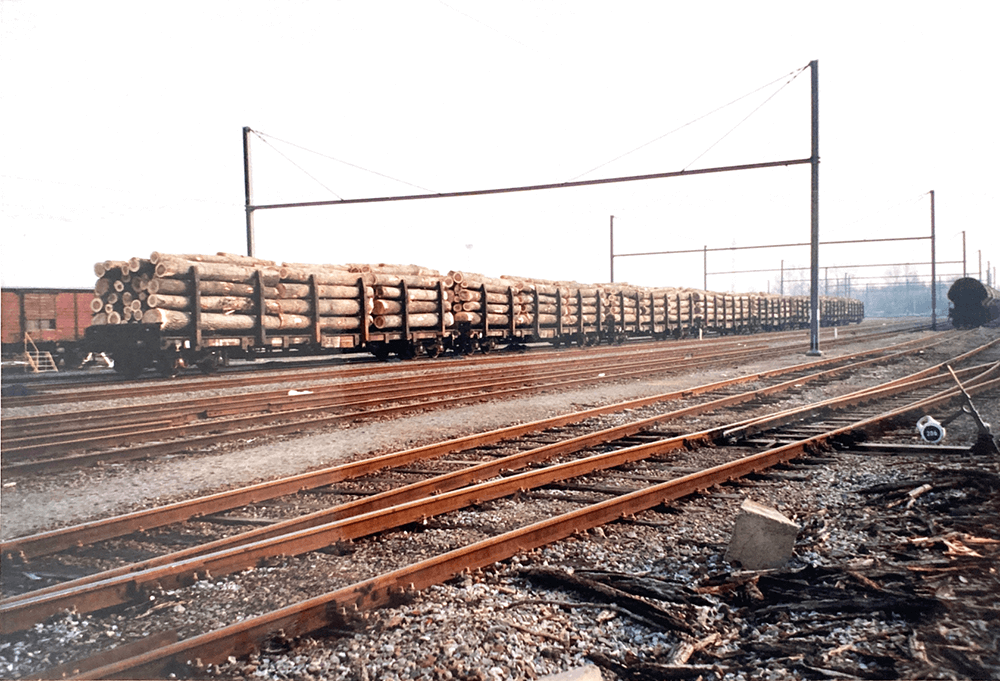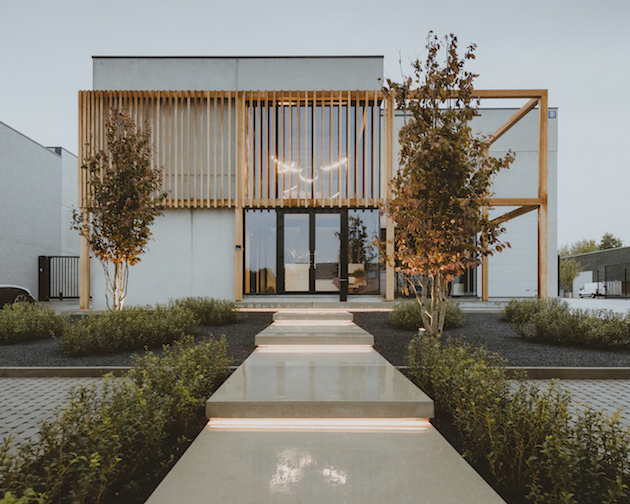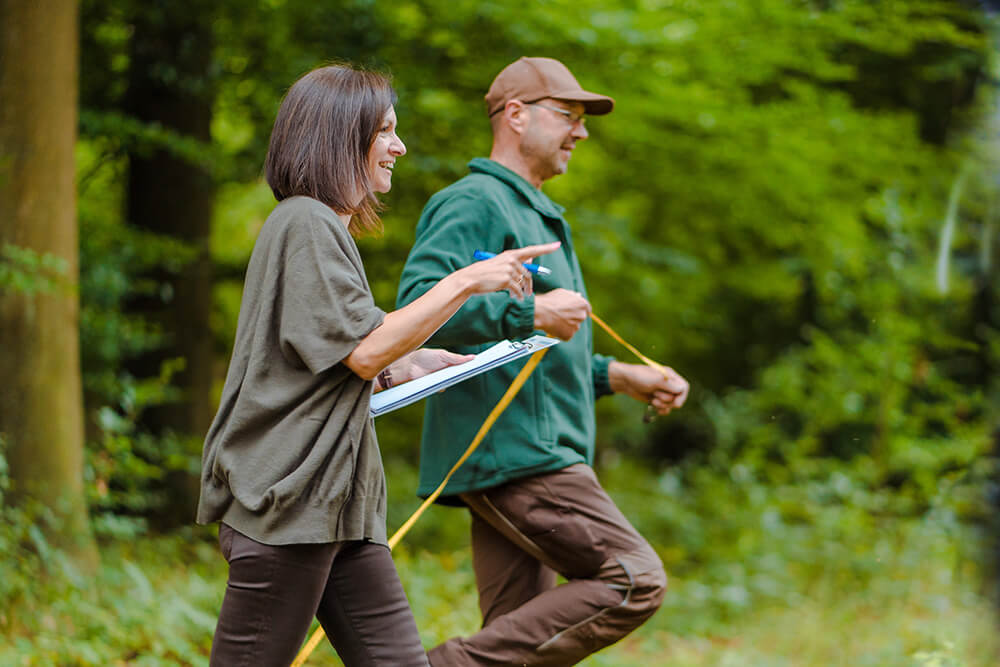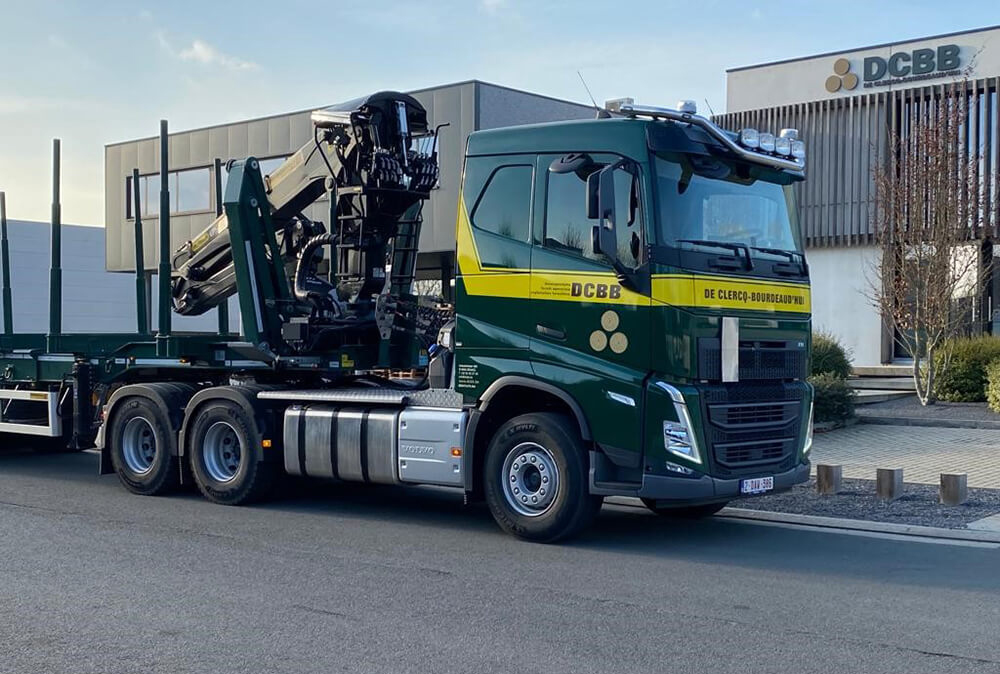DCBB, a story of passion, dedication and sustainable growth
De Clercq-Bourdeaud’hui has its roots deeply embedded in the soil of Brakel. Over the years, DCBB has developed into a leading company within the timber sector. Led by the third generation, a fascinating story is created, driven by passion and dedication for wood and sustainability with an intriguing vision for the future.

Roots of tradition
In 1930 Robert De Clercq began a sideline in the quiet moments between agricultural life laying the foundation for DCBB. With primitive tools, a horse and a cart, he started with forest operation, a passion that would spread over generations. At a time when sawmills were flourishing, the sector was also on the rise in Brakel.
In 1958, Robert fell ill. His son Noël, then just 18 years old, assumed leadership despite his ambition to continue studying. Noël quickly learned everything on his own and expanded the business first in the local region and later across the rest of Belgium. His visionary look extended beyond his own country, with expansions into France and Italy where he introduced transport innovations such as the transport of logs by truck and train. Noël’s leadership not only marked the next chapter of DCBB’s story, but also served as the driving force that propelled the enterprise to new heights.

A new chapter for DCBB
Meanwhile, his daughter Isabel grows up among the majestic trees that would serve as pillars for her future. From an early age, she accompanied her father to the forest. She attended meetings with clients, learned the art of selecting the best quality logs and even participated in public tenders.
In 1994, after Isabel and her husband Stefaan completed their university studies, they joined the company together. They transformed DCBB from a craft company into a professional enterprise with its own trucks and machinery. With a large stock of logs, their efforts resulted in an extensive export portfolio, with as much as 90% of their products reaching international markets today.

Origin of the name DCBB
Initially, the company was known as De Clercq Houthandel, a name shared with other players in the industry. To distinguish itself, Noël De Clercq very strategically formed a partnership with his wife Lea Bourdeaud’hui. As a result, the company’s name evolved into De Clercq Bourdeaud’hui Brakel.
With this unique name, De Clercq Bourdeaud’hui Brakel could stand out in a market filled with similarly named competitors. Their identity gained additional strength through the distinctive green trucks with a yellow stripe on which the name De Clercq Bourdeau’hui Brakel was displayed. In 2010, the company underwent a rebranding, replacing the full name with the acronym DCBB. The name was accompanied by a distinctive logo featuring three tree trunks and the iconic yellow stripe. To this day, this branding is prominently displayed on all the company’s green trucks.
New horizons after a difficult period
The move to a new site in the industrial zone around Brakel in 2018 marked a new crucial phase for DCBB, enabling the company to operate more efficiently. Unfortunately, in 2020 DCBB faced significant challenges both emotionally and economically. The outbreak of the Covid-19 pandemic, combined with the unexpected death of the beloved father Noël due to Covid-19, was a severe ordeal. Noël was still very active in the company and his loss continues to leave a huge void today. Nevertheless, the entire team remained resilient and fully committed to making DCBB further successful.

Today, Isabel alongside her husband, leads DCBB. Quite remarkable in the man’s world of forest exploitation. Isabel focuses on daily business management, customer acquisition and prospecting, while Stefaan is responsible for the purchasing policy, quality control and operational management of the forestry operations. Together, the entrepreneurial couple focuses on overall management, exploring new markets and developing strategies for the future.

Challenges for the future
DCBB is currently facing new challenges, including the growing focus on ecology and circularity. Isabel and Stefaan are preparing the company for the next generation. Their three children (Margaux, Camille and Célestin) show a strong interest in ecology and sustainable business practices, hoping that the family story will continue.
In the future, DCBB wants to position itself as a circular company that processes wood from sustainably managed forests, converts wood residues into green energy forest chips and actively contributes to reforestation. This balance between economy and ecology is the core of their future challenges and ambitions.
The full 3 generation story of DCBB is one of growth, adaptability and a great love for nature. Sustainable entrepreneurship and a deeply rooted family tradition remain crucial pillars for the future of DCBB.










